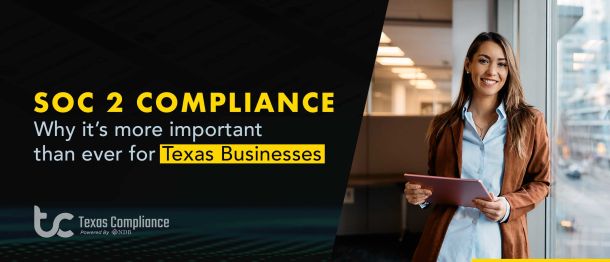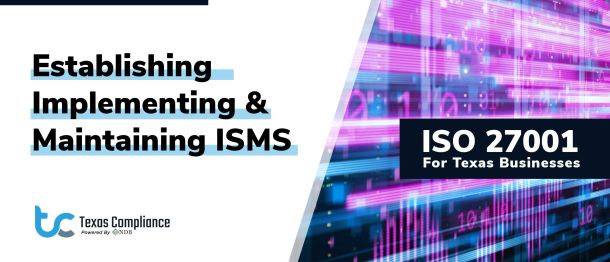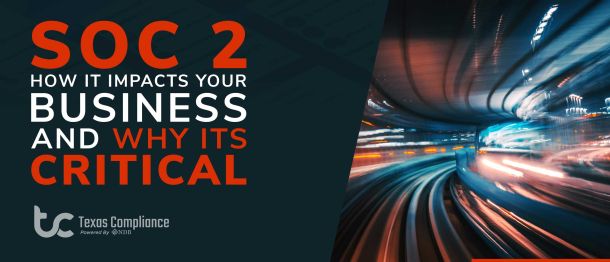
SOC 2 Type 1 Guidelines for Texas Service Organizations (Austin, Dallas, Houston)
SOC 2 Type 1 Guidelines for Texas Service Organizations (Austin, Dallas, Houston)
The SOC 2 Type 1 guidelines, which have been published by the American Institute of Certified Public Accountants (AICPA), consist of the AT 101 professional standard, along with the inclusion of the following five (5) Trust Services Principles (TSP):
- Security
- Availability
- Processing Integrity
- Confidentiality
- Privacy
The Importance of a SOC 2 Scoping & Readiness Assessment
Want to save time, money, while reducing cost overruns and headaches when it comes to SOC 2 compliance? If so, and we’re sure you do, then begin the process with a much-needed SOC 2 scoping & readiness assessment. Benefits of such an assessment include the following:
- Effectively identifies audit scope in terms of business processes to be examined, which would include physical locations to assess, personal involved in the audit, relevant third-party providers, and more.
- Assesses current internal controls in terms of policies, procedures, and processes, and what gaps and deficiencies exist that require remediation prior to the commencement of the actual SOC 2 audit.
- Helps ensure transparency for the entire audit process, while also putting in place a roadmap for auditing success.
Additional points worth noting about NDB's industry leading SOC 2 Type 1 guidelines are the following:
- SOC 2 Type 1 assessments are done for a point in time, whereas SOC 2 Type 2 assessments are conducted over an agreed upon time period.
- Becoming SOC 2 Type 1 compliance means putting in place numerous information security policies and procedures, for which Texas Compliance, LLC offers a complimentary SOC 2 Policy Packet with all the documentation needed.
- SOC 2 Type 1 guidelines call for the use of the five (5) Trust Services Principles.
- SOC 2 Type 1 guidelines require management of the service organization to develop a written statement of assertion and provide a description of its “system”.
Other Important Considerations for SOC 2 Type 1 Reports
Policies and Procedures are Key to Compliance: That’s right, having well-written information security policies and procedures are a big part of becoming – and staying – SOC 2 compliant. In fact, many Texas businesses quickly find that developing such documentation is often the most time-consuming and taxing aspect of the entire audit!
For that reason alone, we offer industry leading InfoSec policy templates for helping Texas businesses save thousands of dollars and dozens of operational hours on critical policy development. It’s just another reason why so many firms in Texas look to NDB for SOC 2 audit guidance and expertise.
Operational Measures Need to be Implemented: When we speak about operational measures, we’re talking about much more than just authoring policies and procedures. Specifically, “operational measures” include the following:
- Performing an annual risk assessment as required by SOC 2.
- Implementing security awareness training as required by SOC 2.
- Putting in place – and testing – an incident response plan as required by SOC 2.
- Performing regularly scheduled vulnerability scans as required by SOC 2.
This requires some heavy lifting and getting management on board for investing in security tools and solutions, along with spending time in implementing these measures. NDB can assist in all aspects of what we call “operational measures”. Call NDB today at 512-522-4943 (Austin), 214-272-0967 (Dallas), or at 713-331-5492 (Houston) to learn more about NDB’s SOC 2 services, or email us at
Continued Compliance is the Norm: Auditors generally show up at your location once a year for anywhere from a few days to a week. With that said, it’s your responsibility to ensure your control environment is functioning as designed. Specifically, it means monitoring controls on a regularly scheduled basis – your policies, procedures, and processes – and reporting upstream to management the results of monitoring.
Remember that an annual SOC 2 audit (either a Type 1 or a Type 2) is really only intended to evaluate – and hopefully validate – that a service organization’s controls are functioning as designed. The other 11.5 months of the year is up to you – the service organization – for keeping your control environment in tip-top shape.
What does “Continued Compliance” really mean? It’s about having personnel assigned to the role of monitoring, enforcing, and making changes to one’s control environment (i.e., an organization’s policies, procedures, and processes) as needed. The more proactive an organization is, the stronger their internal controls become, and the higher the likelihood of having a successful, clean SOC 2 audit each year.
Texas’ Leading Provider of SOC 2 Audits – Fixed Fees & Superior Service
NDB is a leading provider of SOC 2 audits for service organizations all throughout the Lone Star State – including Austin, Dallas, Houston, San Antonio, and beyond. Call NDB today at 512-522-4943 (Austin), 214-272-0967 (Dallas), or at 713-331-5492 (Houston) to learn more about NDB’s SOC 2 services, or email us at

